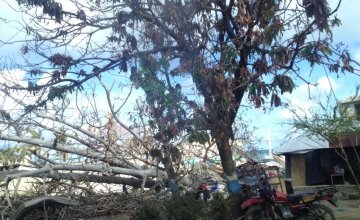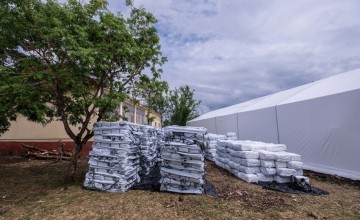
Read our 2023 annual report

Knowledge Hub
Concern works with communities to prepare for El Niño

The global weather phenomenon known as “El Niño," responsible for causing weather-induced disasters such as floods, hurricanes, drought and famine, is predicted to strike this year.
Concern Worldwide is working with communities to prepare.
What is El Niño?
El Niño is part of a cyclical climate phenomenon called the ‘El Niño Southern Oscillation.
The warm and cool phases of this cycle, called “El Niño” and “La Niña” respectively, refer to ocean temperatures off the western coast of South America.
In El Niño years, sea temperatures tend to be higher than normal, and in La Niña years, the temperatures are colder.
This variation in temperature affects oceanic and atmospheric circulation across the globe, which in turn affects climatic conditions, and can shift climate away from the norm.
What does this mean?
It is expected that there will be a higher likelihood of drought in southern Africa.
This could result in:
- Reduced harvests and livestock health
- More difficult access to drinking water
- Deeper poverty for the world’s poorest people

Other regions likely to be affected are eastern Sahel, south Asia and south east Asia.
Conversely, wetter conditions are more likely along the east African coast, which could hopefully lead to good rains and harvests, but could also result in damaging floods.
In El Niño years, there is less chance of hurricanes forming in the Atlantic Ocean, although this doesn't discount the possibility outright.
We need to prepare for the worst – and start gearing up now for responses to droughts and floods. Our charity work in the world’s poorest countries focuses strongly on disaster risk reduction and how it relates to climate change.
This means educating people about ways they can help themselves. It also means investing strongly in:
- Water, sanitation and hygiene
- Drought tolerant agriculture and livestock health for drought prone areas
- Drainage systems and flood defences in flood prone areas
In depth


